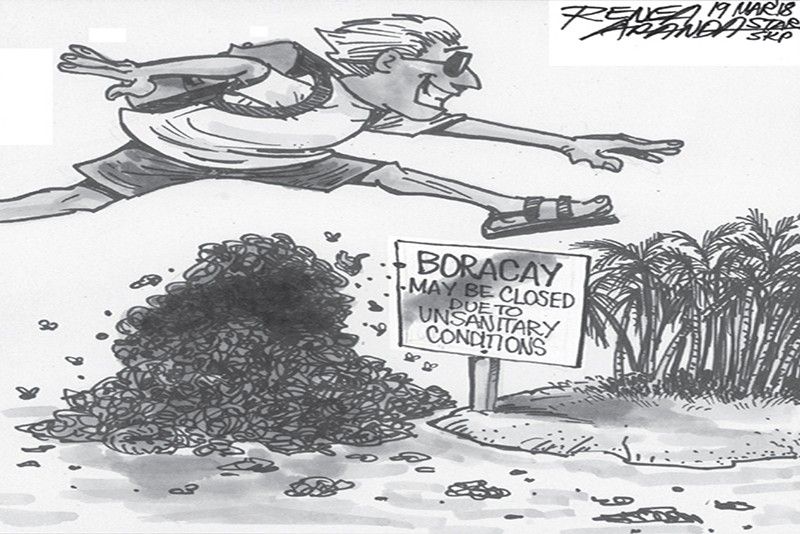EDITORIAL - Boracay shutdown

With all the bad publicity now reaped by Boracay for pollution, the island’s best move is to correct years of neglect ASAP so it can quickly tell the world that it’s back in business. Boracay has taken its worst hit since it gained renown as a travel destination, and it is suffering the consequences at the peak of the travel season.
There is no argument that the island will emerge better once its problems are addressed, and that local government officials bear much of the blame for failure to properly regulate development on the island. But the national government should also avoid headline-grabbing knee-jerk measures to spur a thorough cleanup.
Shutting down the island to tourism for up to a year needs careful consideration. About 30,000 people are directly employed in businesses around the island, with many others dependent for their livelihoods on downstream enterprises. Boracay is the country’s top tourism destination, and until early this year continued to be voted as one of the world’s best in terms of beaches and hotels.
The government can shut down and impose other penalties on establishments that violated environmental laws and are operating without the necessary permits. Some establishments may even have to be closed permanently for sitting on no-build zones. If warranted, administrative and criminal charges can be filed against local government officials.
If the government closes the entire island to tourism due to environmental concerns, it should apply the same stringent standards in other travel destinations. Boracay is not the only island where sewage is dumped directly into the sea. The practice is common all over the archipelago, including in other popular tourism sites.
Sewerage systems are old, inadequate or non-existent in many areas including in Metro Manila and neighboring provinces. With all the bad publicity, Boracay must work double time to address its pollution problem. Instead of a yearlong closure of the island to tourism, however, the government can consider implementing the necessary reforms in phases, or at least a much shorter shutdown period.
Related video:
- Latest
- Trending
























